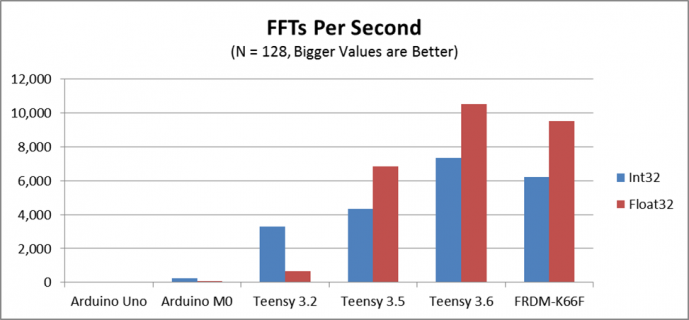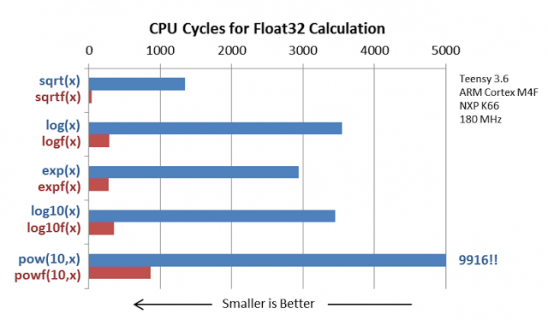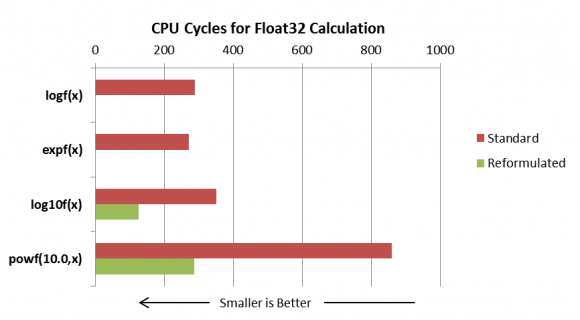chipaudette
Well-known member
Hi All,
I'm working on some audio processing projects and I'm trying to choose a good embedded platform for doing some DSP. But, I also want to be able to program it in a relatively simple way. I'm coming from Arduino and I've done a few projects with Teensy because of the Teensyduino bridge. For me and my fellow audio hackers, I think that some version of Teensy would work well. But is it fast enough?
I've started to do a bunch of audio processing benchmarks on a range of boards: a few Arduino boards, a Maple, a Teensy 3.2, and K66 board to approximate the results that we should see with the up-coming Teensy 3.6.
Right now, I've completed the testing for FIR filtering. My FIR filter is just a naive C implementation right now...follow-on tests using the CMSIS DSP library will be later. With my niave C implementation, I've tested each of the different boards using a range of filter lengths. I've also tested using Int32 and using Float32.
If you're interested in the results, check out the link below. Note that the K66 board (ie, Teensy 3.6) is 25x faster than Teensy 3.2 using floats. Wow!
https://openaudio.blogspot.com/2016/09/benchmarking-fir-filtering.html
My next step is to write up my results for my FFT/IFFT benchmarking. Not surprisingly, they follow a similar pattern as seen with these FIR results.
Has anyone done similar benchmarking comparing from Teensy to a "real" DSP platform (like the TI C5xxx or TI C6xxx series)?
Chip
I'm working on some audio processing projects and I'm trying to choose a good embedded platform for doing some DSP. But, I also want to be able to program it in a relatively simple way. I'm coming from Arduino and I've done a few projects with Teensy because of the Teensyduino bridge. For me and my fellow audio hackers, I think that some version of Teensy would work well. But is it fast enough?
I've started to do a bunch of audio processing benchmarks on a range of boards: a few Arduino boards, a Maple, a Teensy 3.2, and K66 board to approximate the results that we should see with the up-coming Teensy 3.6.
Right now, I've completed the testing for FIR filtering. My FIR filter is just a naive C implementation right now...follow-on tests using the CMSIS DSP library will be later. With my niave C implementation, I've tested each of the different boards using a range of filter lengths. I've also tested using Int32 and using Float32.
If you're interested in the results, check out the link below. Note that the K66 board (ie, Teensy 3.6) is 25x faster than Teensy 3.2 using floats. Wow!
https://openaudio.blogspot.com/2016/09/benchmarking-fir-filtering.html
My next step is to write up my results for my FFT/IFFT benchmarking. Not surprisingly, they follow a similar pattern as seen with these FIR results.
Has anyone done similar benchmarking comparing from Teensy to a "real" DSP platform (like the TI C5xxx or TI C6xxx series)?
Chip




